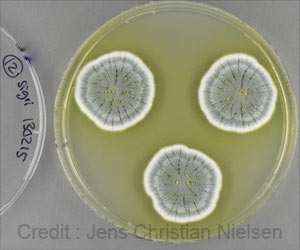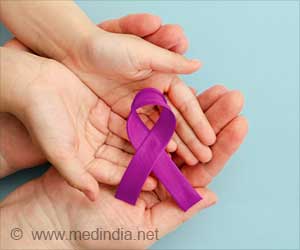- Drug discovery is a process by which new drugs are developed.
- A new technique has been identified to use natural sources like fungi for drug discovery.
- Fungi mold genomes can be used to find new drugs if the technique is brought up on the industrial scale.
"We have established a new platform that can be scaled for industry to provide a veritable fountain of new medicines. Instead of rediscovering penicillin, our method systematically pulls out valuable new chemicals and the genes that make them. They can then be studied in depth."
The research study has been published in the journal Nature Chemical Biology.
Fungal Molecules to Be Discovered
There are thousands or even millions of fungal molecules that are waiting to be discovered for developing new drugs.
The technology could identify powerful bioactive molecules for creating new drug leads. The small molecules can help to create new antibiotics, immunosuppressant drugs or treatments for high cholesterol.
In a recent study, the research team applied the new method to three different fungal species. Around 17 new natural products were discovered from about 56 gene clusters that were screened during the new process.
Keller, professor of medical microbiology and immunology and bacteriology at Wisconsin, said, "Fungi make these natural products for a reason, and a lot of them are antimicrobial."
"They're used as weapons to kill or retard growth of other fungi, bacteria or any other competing microbe in the area where the fungus wants to grow. Fungal compounds are a major source of diverse drugs."
FAC-MS (Fungal Artificial Chromosomes with Metabolomic Scoring)
The three-step system has used genomics and molecular biology in order to identify and capture fungal DNAs called Gene clusters. This could likely produce new molecules and puts DNA in a fungus model that could grow easily in the lab and analyze the chemical products using mass spectrometry and data analytics.
Problems While Using Fungal Species for Drug Discovery
- Slow rate in systematically unlocking the fungal compounds
- Rediscovering old compounds like penicillin
- Difference between what a fungus can produce and what it cannot produce
- The ability to know when you could have a new chemical opposed to thousands of more similar compounds that the cells could produce.
Kenneth D. Clevenger, Postdoctoral fellow in Kelleher’s lab at Northwestern, said, "Because these molecules are coming from a biological system, they tend to be more complex than a new molecule made in a pharmaceutical lab."
"Molecules from fungi are predisposed to interact with cells and proteins, so, in that sense, they have promise. Our hope is that we find useful bioactivities that could lead to new medicines."
The research team was capable of finding out 56 gene clusters and around 17 new products. They picked up one to rigorously characterize in depth that is named as valactamide.
Jin Woo Bok, senior scientist in Keller’s lab at Wisconsin, said, "We've designed a methodology where we can take all 56 gene clusters from fungi, package them and go through a process where we can try to express all of them."
Further, if the new technique FAC-MS process when brought to an industrial scale could help to domesticate wild molds to develop drugs from natural compounds.
Source-Medindia
















